流行
How to Build the Perfect Oral Care Routine in 2025
Jul 30
Why Your Gums Bleed and How to Fix It Fast in 2025
Jul 30
Top 5 Oral Care Mistakes and How BrushO Fixes Them
Jul 29
What Makes a Toothbrush “Smart”?
Jul 22
BrushO Smart Toothbrush: Gentle, Powerful, Travel-Friendly
Jul 19
BrushO: The Future of Smart Oral Care—Redefining the Way You Brush
Jul 17
返回
Morning vs Night Brushing: Best for Your TeethSep 2
Sep 2
Morning vs night brushing is not just a simple choice—it changes how your mouth fights bacteria, plaque, and acid during the day and overnight. While both times matter, their benefits differ across age groups and lifestyles. In this article, we’ll explore the science of brushing timing, share dentist-backed advice, and explain how smart tools like BrushO make sticking to the habit easier.
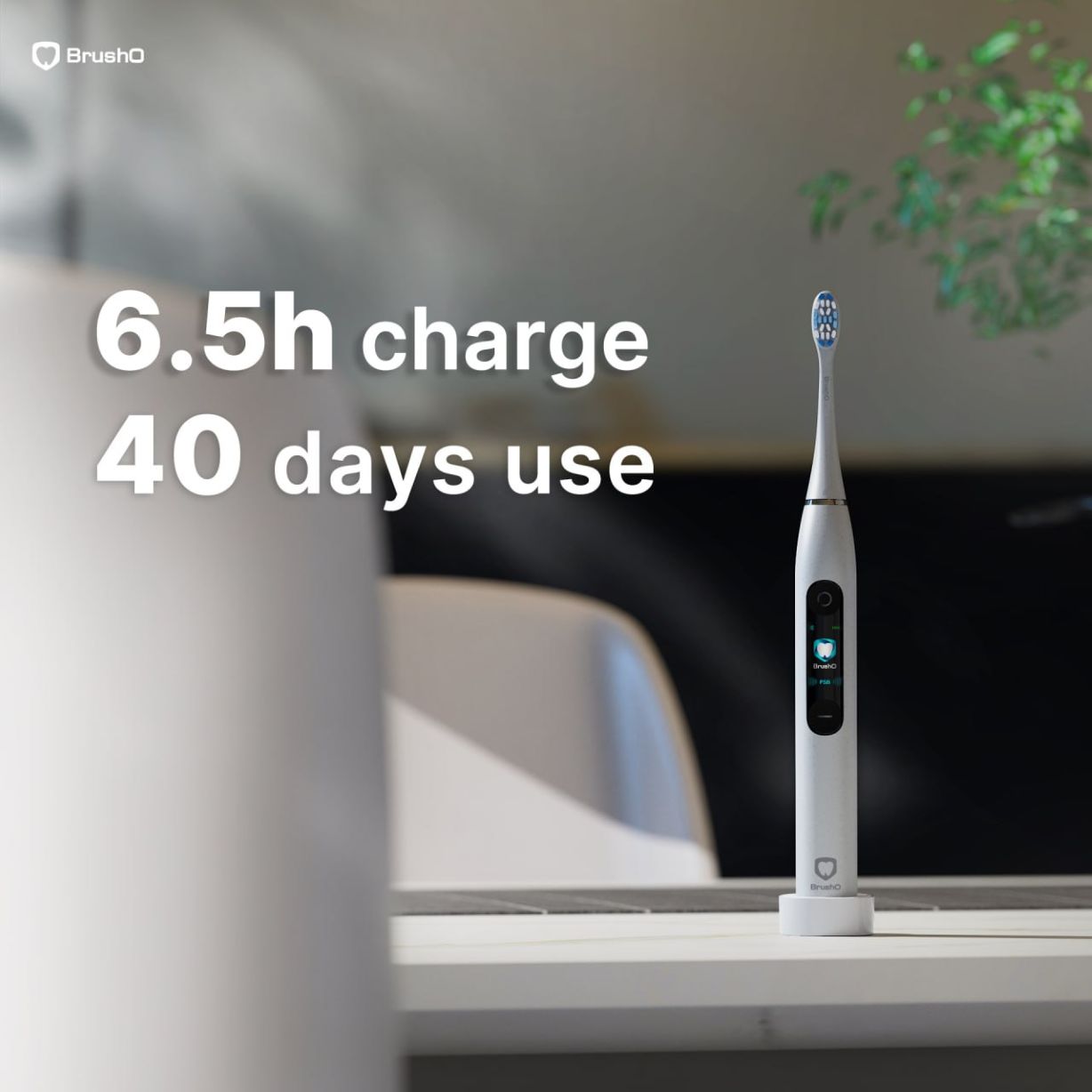
Why Brushing in the Morning Matters ☀️
Clears overnight buildup: Saliva drops when you sleep, bacteria multiply, and morning brushing removes this biofilm.
Fresh breath boost: Eliminates morning odor from bacterial sulfur compounds.
Pre-meal protection: Brushing before breakfast leaves a fluoride layer that shields teeth from acids in coffee, juice, or fruit.
Mental cue: Acts as a “wake-up signal,” anchoring your day in hygiene.
Why Brushing at Night Matters 🌙
Stops bacteria feasts: Food particles left behind are fuel for cavity-causing bacteria overnight.
Reduces gum problems: Night brushing lowers inflammation risks tied to gingivitis and periodontitis.
Protects enamel long-term: Leaving plaque on teeth overnight accelerates enamel wear and tartar buildup.
Pairs with flossing: Evening is the best time to floss, making brushing more effective.
Different People, Different Priorities
Kids 👧🧒
- Often forget brushing before bed—yet this is most important for preventing cavities in baby teeth.
- Parents should supervise brushing at night, even if kids brushed in the morning.
Working Adults 🏙️
- Coffee drinkers: Brushing before coffee prevents acid + stain penetration.
- Smokers or frequent snackers: Night brushing is non-negotiable to remove tar and sugars.
People with Braces 😬
- Night brushing is critical to clean around brackets and wires.
- A deep-clean mode on smart brushes helps cover hard-to-reach areas.
Seniors 👵👴
- Gum recession makes roots more exposed—so both morning (for freshness) and night (for decay prevention) are essential.
- Sensitive mode is often better tolerated.
Morning vs Night: A Quick Comparison
Aspect Morning Brushing ☀️ Night Brushing 🌙
Fresh breath Yes – reduces morning odor No major effect (already fresher at night)
Plaque removal Clears overnight bacteria Clears food particles & daily buildup
Enamel protection Fluoride shield before breakfast Stops acid attack during long sleep hours
Dentist priority Useful for freshness and protection Critical to prevent decay and disease
📌 If you must choose just one, dentists say night brushing is more important. But brushing twice a day remains the gold standard.
How BrushO Helps Build Habits 💡
Consistency is the challenge—not knowledge. The BrushO Smart Electric Toothbrush solves this with:
- AI-powered reminders: Nudges you to brush morning and night.
- brushing modes: Choose gentle in the morning, deep clean at night.
- Long battery life (45 days): Perfect for travel and busy routines.
- Brushing reports: Track streaks to keep motivation high.
With BrushO, brushing at both times becomes easy and sustainable.
FAQ: Morning vs Night Brushing
Q1: Should I brush before or after breakfast?
Dentists recommend before breakfast. If after, wait 30 minutes to protect enamel.
Q2: Is brushing once a day enough?
Not ideal. If only once, brushing at night is far more important.
Q3: Can I brush three times a day?
Yes, but don’t overbrush—gentle technique and a pressure sensor toothbrush prevent gum damage.
Morning vs night brushing—which matters more?
Morning brushing fights odor and preps teeth for the day, while night brushing protects against plaque and decay during long sleep hours. If you must choose, night brushing wins. But with smart tools like BrushO, maintaining both is effortless—and your teeth will thank you for it.
👉 Build better habits today with BrushO
👉 Learn more: Why Smart Toothbrushes Are the New Lifestyle Trend
流行
How to Build the Perfect Oral Care Routine in 2025
Jul 30
Why Your Gums Bleed and How to Fix It Fast in 2025
Jul 30
Top 5 Oral Care Mistakes and How BrushO Fixes Them
Jul 29
What Makes a Toothbrush “Smart”?
Jul 22
BrushO Smart Toothbrush: Gentle, Powerful, Travel-Friendly
Jul 19
BrushO: The Future of Smart Oral Care—Redefining the Way You Brush
Jul 17
最近發文
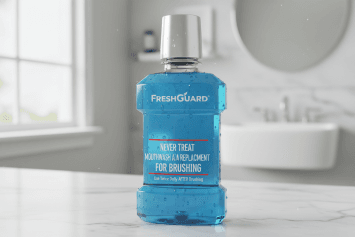
Never Treat Mouthwash as a Replacement for Brushing
Mouthwash may freshen your breath, but it can’t replace brushing. Learn why brushing remains essential for removing plaque and protecting gum health—even with daily mouthwash use.
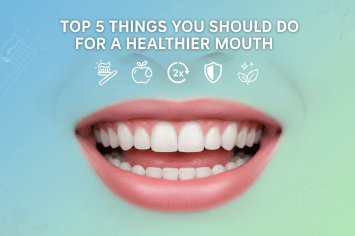
Top 5 Things You SHOULD Do for a Healthier Mouth
Discover the top 5 science-backed habits that promote a healthier mouth—better brushing, smart flossing, nutrition tips, hydration, and regular dental visits. Boost your oral hygiene and full-body health with consistent care.
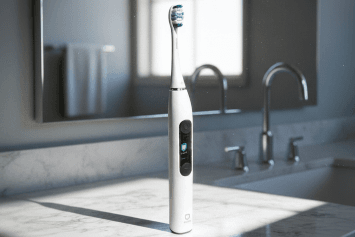
Smart Brushing Habits to Help You Age Gracefully
Discover smart brushing habits that support healthy aging. Learn how proper brushing techniques, timing, and technology like AI toothbrushes help protect your gums, enamel, and overall health as you age.
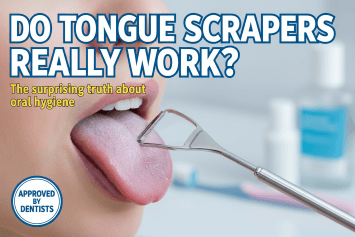
Do Tongue Scrapers Really Work?
Do tongue scrapers actually work? Discover the science behind tongue cleaning, how it improves breath, reduces bacteria, and whether it’s worth adding to your daily oral hygiene routine.
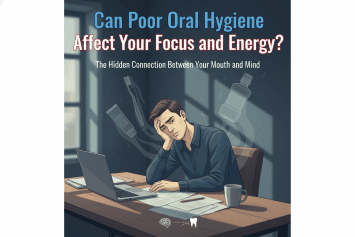
Can Poor Oral Hygiene Affect Your Focus and Energy?
Can poor oral health drain your focus and energy? Discover the surprising science connecting dental hygiene to brain fog, fatigue, and productivity. Backed by expert research and smart brushing strategies.
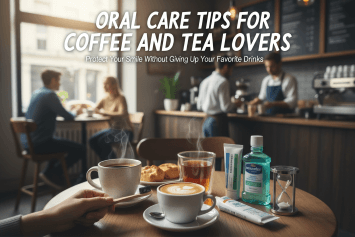
Oral Care Tips for Coffee and Tea Lovers
Love coffee or tea but worried about stains and enamel erosion? Learn science-backed oral care tips to protect your teeth while still enjoying your favorite drinks. Perfect for BrushO smart toothbrush users.
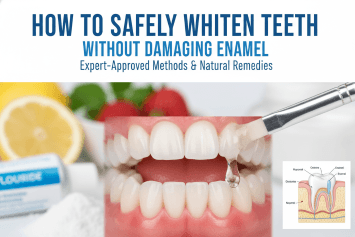
How to Safely Whiten Teeth Without Damaging Enamel
Want a brighter smile without harming your enamel? Discover dentist-approved teeth whitening methods that are safe, effective, and compatible with smart toothbrushes like BrushO.
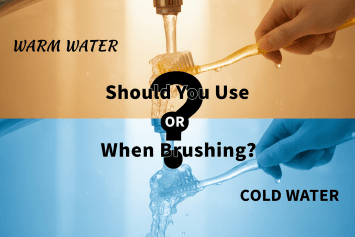
Should You Use Warm or Cold Water When Brushing?
Wondering whether to use warm or cold water when brushing your teeth? Discover the pros and cons of each, backed by dental science—and how smart toothbrushes like BrushO adapt to your oral health needs.
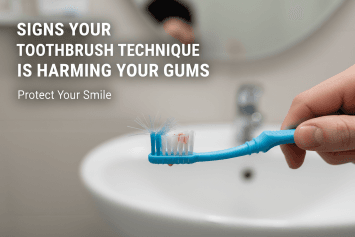
Signs Your Toothbrush Technique Is Harming Your Gums
Are you brushing your teeth the wrong way? Learn the surprising signs your toothbrush technique may be harming your gums—and how smart toothbrushes like BrushO can help you brush safer and smarter.
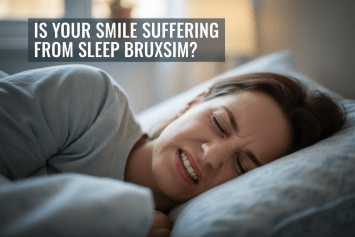
Is Your Smile Suffering from Sleep Bruxism?
Sleep bruxism—nighttime teeth grinding—can silently damage your smile. Learn how to recognize symptoms, prevent long-term oral harm, and how smart toothbrushes like BrushO can support bruxism management.
